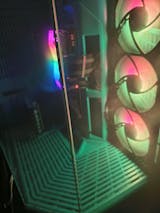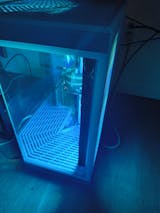Traditionally, the best way to keep your online accounts safe is to make a password that is hard to guess and includes a mix of letters, numbers, and symbols. Passphrases, on the other hand, are the new boss in town. If you still use weak passwords like "123456" or "P@ssw0rd," you need to step up your protection. If you want to know why passphrases are better, read this piece. They can make your internet life safer.
What Is a Passphrase?
A passphrase is like a password, but it's longer, safer, and more often than not, easier to remember. A password is not a random line of characters. Instead, it is a set of words or a sentence, with numbers or special characters thrown in here and there. It's much easier to remember a password like "CatsLoveTacos!2024" than something like "X9!b7sP."
Why Passphrases Beat Passwords
1. Easier to Remember
It's hard for most of us to remember long passwords, especially when they're different for each account. A password, on the other hand, can be something important to you that helps you remember it without writing it down. For example, "MyDogEatsPizzaEveryDay!" is easy to remember and safe.
2. Harder to Crack
For hackers, one of the best things about passphrases is how hard they are to break. Software that cracks passwords can easily figure out short, complicated passwords, but a long code makes things even harder. The longer a code is, the harder it is to guess using brute force, which is when hackers try a lot of different password combinations to get to yours.
3. Increases Security Without Sacrificing Usability
Uppercase letters, numbers, and special characters are often needed in traditional passwords, which can lead to confusing combinations like "B3stP@ssw0rd!" With a passphrase, you can make lines that are longer, more safe, but still easy to type and remember, like "SunnyDaysAreGreat@2024".
How to Create a Strong Passphrase
Creating a strong passphrase is simple, and here are a few tips to get you started:
- Use a Sentence: Think of a phrase that means something to you, like "CoffeeIsLife@6amEveryday."
- Include Numbers and Special Characters: Sprinkle in numbers or symbols to increase complexity without making it too hard to remember. For example, "IAmA#1Gamer!".
- Avoid Common Phrases: Stay away from popular quotes or song lyrics that might be easy to guess.
- Make It Long: Aim for a passphrase that’s at least 12-16 characters long for optimal security.
Bonus Tip: Use a Password Generator
Password makers can help you out if you're stuck or want to add an extra layer of chance. With these tools, you can make private passphrases that are hard to guess and are different for each account. Plus, they keep you from having to think of new passphrases all the time.
Tools You Can Use
Here are a few password generators to help you create strong passphrases:
- LastPass: Known for its secure password vault and generator.
- Dashlane: Provides both passwords and passphrases that are highly secure.
- 1Password: Allows you to generate passphrases that are easy to remember and even easier to manage.
Sticking to old-fashioned passwords isn't enough in this digital age where online threats are always changing. A easy but effective way to make your online security better is to switch to passphrases. And because they're hard to guess, they make you less likely to be hacked.
Try a password like "GuitarRocks@EveryParty!" the next time you want to use "P@ssw0rd" for your new account. Believe us, you'll be glad you did.
Keep yourself safe, and make sure your passphrases are strong! 💪















